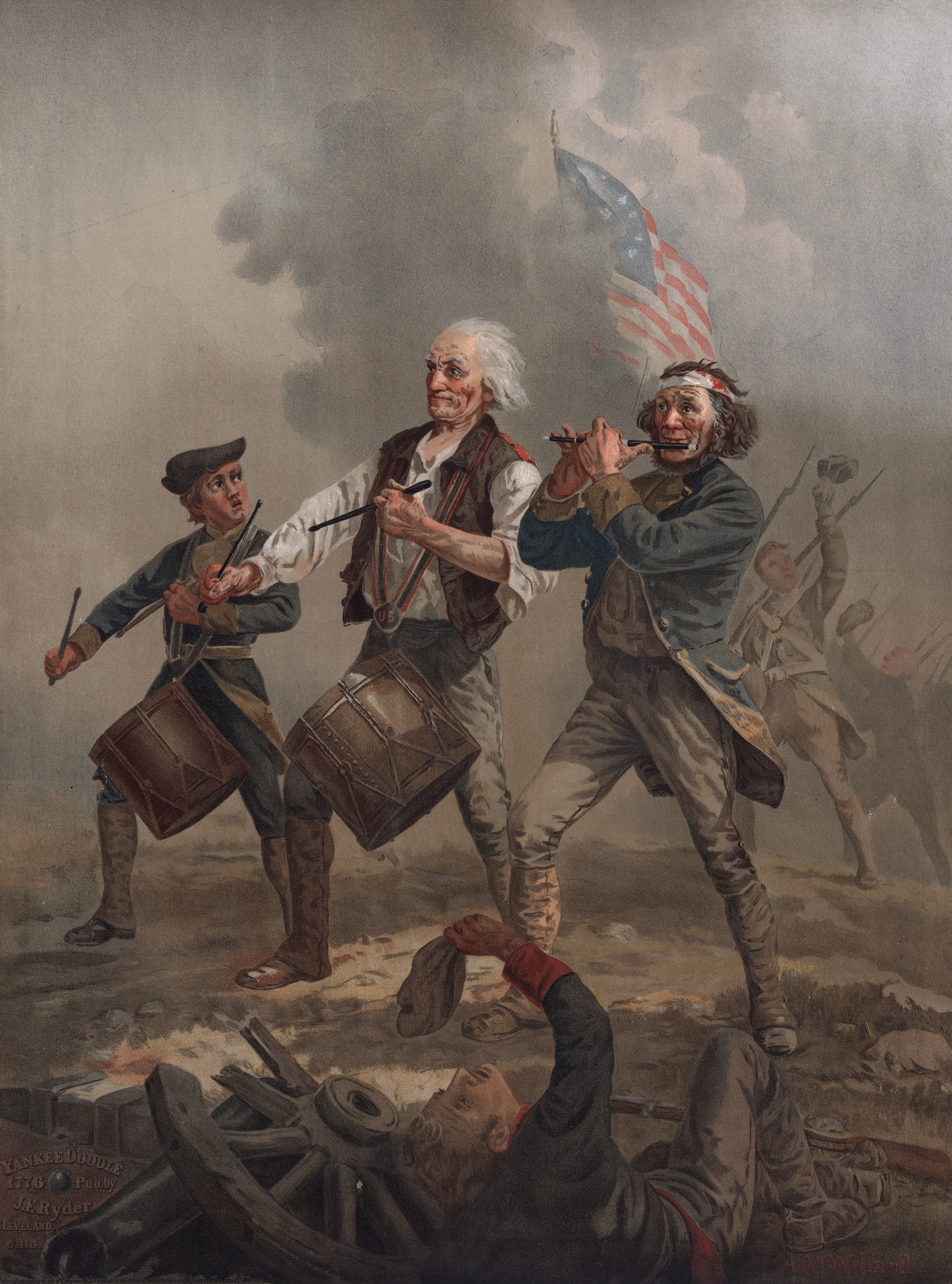Word History of the Week: Yankee Pt 1
This weeks blog post is about the word yankee and I will be actually splitting it up into two posts because there is a lot of awesome information to share with you. This weeks post will be about the origin of the word. Next weeks post will be about the history of its many uses.
To give a brief definition of the word yankee without going into all its variations is difficult, but the shortest way to say it is: it refers to a United States Citizen of some form or another.
The origin of this word is, in my nerdy opinion, extremely fun because there are a lot of stories about its origin, most of them that Linguistics agree simply aren’t true. Some of these fake origins include:
-It’s derived from the Cherokee word for “coward”, eankke – but this word does not actually exist in the Cherokee language
– It’s a borrowed word from the Huron/Wyandot pronunciation of the word l’anglais (the word for English in the French language), which would have been pronounced Y’an-gee
-It’s a Native American attempt at saying the word English.
You can see the pattern here – the word yankee is from Native Americans who couldn’t pronounce words, right? WRONG! The word actually has nothing to do with Native Americans and while I don’t have a source for this, I doubt that Native Americans had any more trouble in pronouncing things than any group of individuals encountering a foreign language. Part of me wonders if all these false origins are from racism, trying to make Native Americans appear less intelligent for their lack or pronunciation skills – again, no skills, this is just a ramble.
The true origin of the word yankee comes from the Dutch. During the colonization of North America, the areas which are now New York, New Jersey, and Delaware were inhabited by the Dutch and the states of Massachusetts, Rhode Island, and Connecticut were inhabited by the English. These two groups had many interactions and sometimes English people would settle in Dutch areas. From this point there are three major arguments as to where the word yankee derived.
1. Jan and Kees are common first names in the Dutch language, in use today and during colonization. The two are sometimes combined, even, into Jan Kees – this could have then developed into yankee to describe English settlers moving into previously Dutch colonized areas.
2. The Dutch nickname Janneke (meaning “little John” or Johnny), would be Anglicized to Yankee. Anglicized means to convert any word to a more English pronunciation/spelling, in this instance. This explanation believes that yankee was used to describe Dutch-speaking American colonists, and by extension non-dutch colonists.
3. The derogatory term John Cheese was often used to describe Dutch settlers, who were popular for their cheese production. The Dutch translation for John Cheese would be Jan Kaas; this could have also been Anglicized to Yankees and therefore be where the word originated.
While the exact source of the word is not known, it’s very clear to Linguists that it’s more likely of Dutch/English intermingled origin than Native American. The more important thing to recognize here is that the word originated long before the American Revolutionary War or the American Civil War, even though most US citizens may associated the words with those wars. Non-US citizens may be more likely to associate the word with World War Two, which brings me to the topic of next weeks posts: the word’s many uses throughout the centuries, how it was used during specific wars, and how the meaning of the word varies depending on where you live. Stay tuned!












Ha! You actually did it ^_^ 😮 This one is super interesting, cause I never really thought about where it could come from. Can’t wait for the next part :3
Cool! Never would have guessed Dutch, but I guess I’m not really sure what I would have guessed. Such an odd word!
I forgot to add my sources – for reference I got most of the info from Wikipedia. I will add the link sources this evening.
Glad you enjoyed! I’m looking forward to part two. I think it’s WAY more interesting.